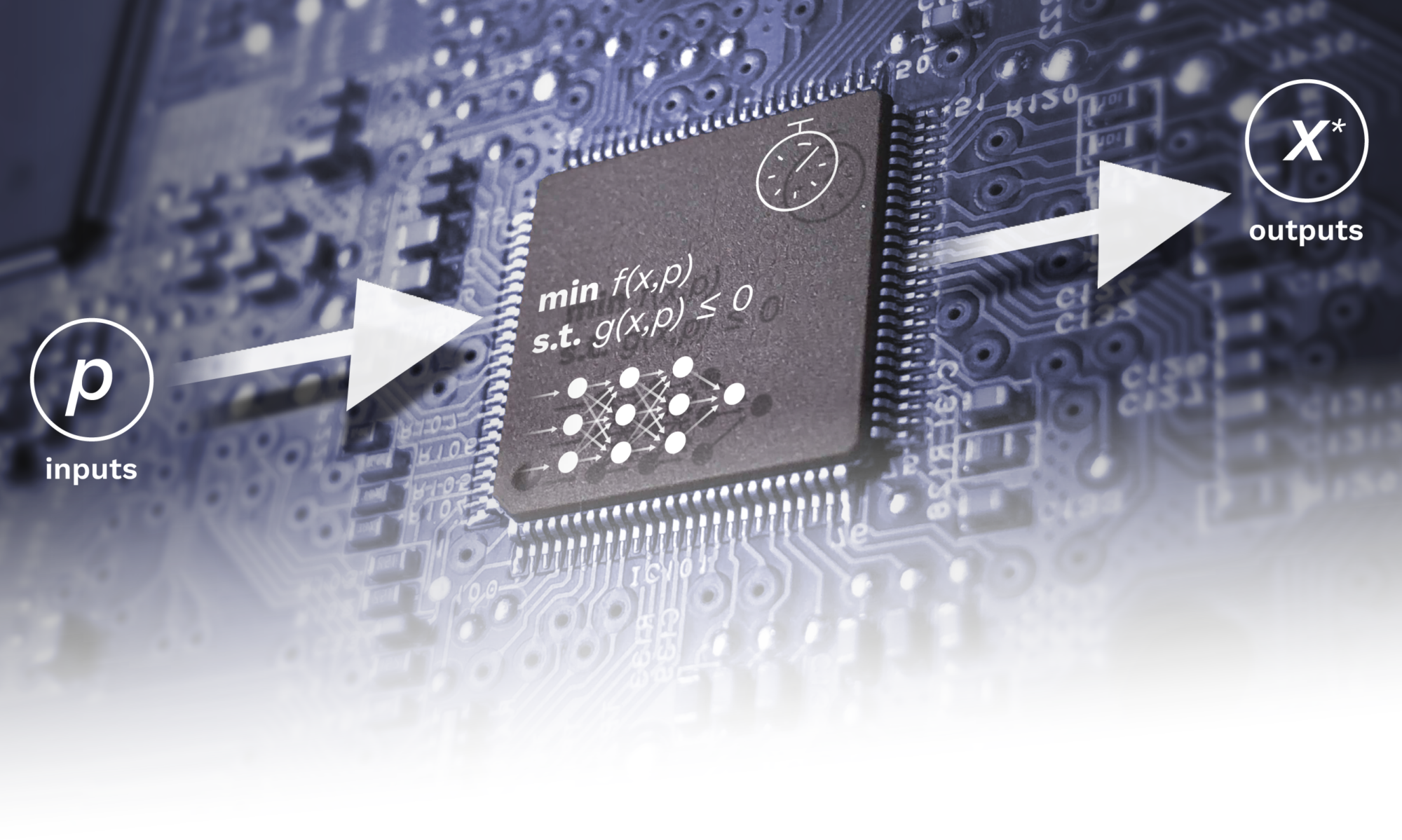
Andrea Ghezzi was born in Bergamo, Italy, in 1996. He obtained his Master degree cum laude in Automation and Control Engineering from Politecnico di Milano with a thesis about stochastic MPC with constraint prioritization. From December 2020 to September 2021 he was a researcher at Data Science R&D Department of Tenaris Dalmine, working on virtual sensing for improving the steel making process. From October 2021 he joined SYSCOP Laboratory at University of Freiburg, carrying out a PhD under the supervision of Prof. Dr. Moritz Diehl. He is a Marie-Curie fellow of the ELO-X project.
Project description
The combination of machine learning and model predictive control can potentially allow for efficient control of complex systems with very little engineering effort, as both the task of modeling the system and finding the best way to control it is handled by the computer. However, learned models are usually larger and hence require more computational effort to simulate and optimize than hand-crafted models. The objective of this project is to improve the speed of model predictive control (MPC) algorithms for learned models, by developing nonlinear optimization algorithms that exploit the structure and sparsity patterns that arise in these specific optimization problems, and by developing “optimization friendly” model classes. Such models must be efficiently evaluated and differentiated inside the embedded optimization solvers.
The project has three milestones:
- The first year is mainly dedicated to studying and getting acquainted with the identification of optimization friendly learning models to be used with MPC.
- The second year focuses on optimized learned models that can be evaluated fast and have small memory footprint and have the potential for sparsity exploitation.
- In the third year, the plan is to focus on open-source software implementation, algorithm verification and integration into rapid prototyping frameworks for embedded control systems.


